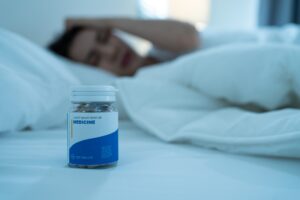Testosterone plays a vital role in male health, influencing muscle mass, energy, mood, cardiovascular wellness, and overall vitality. When levels drop too low, the effects can be life-changing—but not in a good way. This is where testosterone replacement therapy (TRT) comes in. Despite its growing popularity, TRT is often misunderstood and mistakenly equated with anabolic steroid use. In reality, these are two very different things with distinct purposes, benefits, and risks.
TRT vs Steroids: Clearing the Confusion
The most common misconception is that testosterone therapy is the same as taking anabolic steroids. While both involve hormones, their intent, dosage, and outcomes are vastly different:
- TRT: Prescribed by a medical professional to restore testosterone to a healthy, optimal range—typically for men diagnosed with low testosterone (hypogonadism).
- Anabolic Steroids: Synthetic variations of testosterone or other hormones, often used in much higher doses for rapid muscle growth, performance enhancement, and physique changes.
Testosterone in TRT is a bioidentical hormone—essentially the same as what your body naturally produces. Steroids, on the other hand, include compounds such as nandrolone, anadrol, or stanozolol, which are designed to create anabolic effects beyond normal physiological levels.
Why Testosterone Matters
Testosterone is not optional for male health. Low levels can lead to fatigue, reduced muscle mass, loss of bone density, cognitive decline, mood disturbances, and increased risk of metabolic issues. Research from the National Institutes of Health confirms that adequate testosterone levels are crucial for maintaining lean mass, metabolic function, and sexual health.
When TRT Makes Sense
Testosterone replacement therapy is designed to restore levels to the optimal range for the individual. Most medical guidelines consider normal total testosterone to be between 300–1,000 ng/dL, though this can vary by lab. Men experiencing symptoms of low testosterone alongside confirmed blood test results may be candidates for TRT.
Potential benefits of properly administered TRT include:
- Improved energy levels and reduced fatigue
- Enhanced mood and mental clarity
- Better muscle retention and recovery
- Increased bone density
- Support for healthy body composition
The Risks of Abuse
Just because testosterone is essential doesn’t mean more is better. Excessive dosages—often used in steroid cycles—can cause heart strain, elevated blood pressure, liver stress, hormonal imbalances, and side effects like acne or water retention. High levels beyond physiological norms can also suppress the body’s own hormone production.
TRT is not a shortcut for bodybuilding. It’s a medical therapy that should always be guided by bloodwork and clinical evaluation. Abusing testosterone under the label of “just TRT” is still misuse and carries similar risks to steroid abuse.
Why Supervision Matters
TRT should always be prescribed by a qualified medical provider, ideally one specializing in hormone therapy. Treatment involves:
- Initial and ongoing blood tests
- Customized dosing based on individual needs
- Monitoring of related hormones like estradiol and hematocrit
- Adjustments to maintain balance and avoid side effects
Self-administering testosterone from unregulated sources can be dangerous due to contamination, incorrect dosing, or counterfeit products. Clinics and compounding pharmacies ensure product purity and accurate dosing.
Natural Ways to Support Testosterone
For younger men, lifestyle changes can often improve testosterone without medical intervention. This includes:
- Maintaining a healthy weight and reducing visceral fat
- Strength training and regular physical activity
- Improving sleep quality and duration
- Managing stress effectively
- Consuming adequate protein and micronutrients such as zinc and vitamin D (NIH Vitamin D Fact Sheet)
For men who have already optimized these factors but still have low levels, TRT may be the next step.
TRT for Women
While often discussed in a male context, some women also benefit from testosterone therapy at much lower doses. In women, it can support energy, libido, and bone health—though treatment must be carefully monitored to avoid masculinizing effects.
The Bottom Line
TRT can be life-changing when used appropriately—improving quality of life, physical performance, and long-term health. But it is not the same as anabolic steroid use, and it’s not a one-size-fits-all solution. The safest path is to work with a reputable clinic, undergo proper testing, and commit to ongoing monitoring.
Video Summary
For more evidence-based nutrition and fitness tips, subscribe to our channel: https://www.youtube.com/@Vitality-and-Wellness
Disclaimer: This content is for educational purposes and does not replace personalized medical advice.



